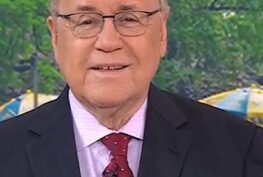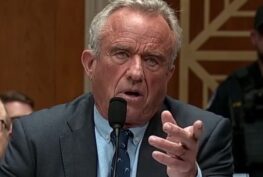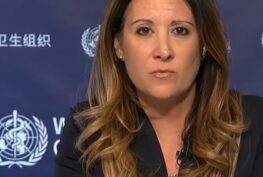BY MARC SIEGEL, OPINION CONTRIBUTOR
In war-torn Ukraine, as thousands of children and families are evacuated or try to escape, a humanitarian crisis is building and the physical and psychological impact on children is devastating.
According to the World Health Organization, hospitals are running out of vital medical supplies while others are attacked and there is an exodus of health care workers. Hospitals are being targeted, patients are being relocated to makeshift shelters, COVID-19 is surging and the polio outbreak among children, which the country has been fighting for months, is expanding. WHO officials report that routine immunizations, outbreak control efforts and the immunization campaign for polio have been suspended, with over 100,000 children still unprotected. The same holds true for COVID where children in Ukraine have been found to be particularly susceptible.
The impact of the war on Ukraine’s children is devastating. Dr. Ayesha Kadir, senior humanitarian health lead for Save the Children U.K., a world expert on the impact of armed conflict and migration on children, spoke to me on Doctor Radio Reports on SiriusXM last week about the tremendous risks to children in combat areas in terms of separation, exploitation and risks of trafficking. She revealed that studies have shown that the loss of education and structure that school provides leads to a downstream impact on children’s development, not to mention mental health and psychosocial effects. Dr. Charles Marmar, chairman of psychiatry at NYU Langone Medical Center and a longtime PTSD expert, told me that removing the direct threat as soon as possible and mental health intervention aids in recovery.
Kadir said that “In an active combat setting, there is a big risk to children of physical injury… sexual violence and exploitation, risk of torture, execution, recruitment into armed forces and armed groups and downstream effects.” Kadir added that there are also severe negative impacts from fleeing or leaving, where refugee children from armed conflicts have a high risk of mortality in the first year. According to UNICEF, 1 million children are among the refugees who have left Ukraine so far.
“It is very common in refugee children to have a lot of somatic symptoms, pains, headaches, stomach aches, changes in bowel patterns, difficulty sleeping and nightmares,” Kadir said. “How an individual child reacts will depend on everything else that’s happening around them and who or what is protecting them. Children…take cues from adults around them, in terms of what’s normal and what isn’t. And that influences in return how they engage in these experiences, a war, or being displaced.”
Armed conflict creates toxic stress that accumulates over time. The more exposure a child has to this stress the more he or she is likely to develop an associated illness or early death. Stress physiology (and cortisol response) are altered as a result, as I wrote in “False Alarm: the Truth About the Epidemic of Fear.” Higher resting cortisol levels or chronic activation from being on constant alert impacts the brain over time.
The good news, according to Kadir is that “children are quite adaptable, when stressors are removed and protective factors are put in place they can actually return to normal as the physiology and architecture of the brain is normalized.”
Unfortunately, the risks of war to children extend well beyond the war itself. COVID-induced disruptions in schooling and a chronic politician-and-media stoked state of fear has now extended to images of war and growing unease.
“You can’t make an absolute statement that experiencing violence and injury is worse than witnessing it,” Kadir said to me. “This depends on the child. Resilience…is a fluid process, an evolving ability to positively adapt in the face of a harmful traumatic situation.”
It would seem that the world needs the ability to adapt to trauma more now than at any time since World War II. The less we can disrupt our children’s lives and the more structure and emotional cushion we can provide to help them recover their wellbeing the better.
Marc Siegel, M.D., is a professor of medicine and medical director of Doctor Radio at NYU Langone Health. He is a Fox News medical correspondent and author of the new book, “COVID; the Politics of Fear and the Power of Science.”






No Comments